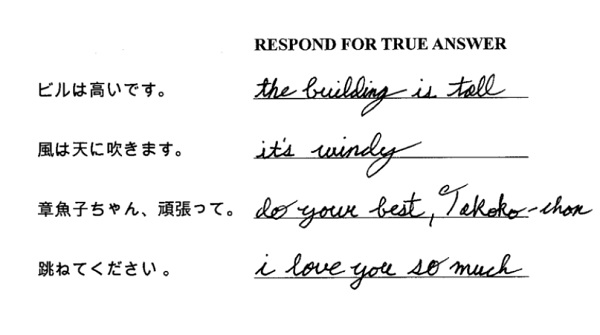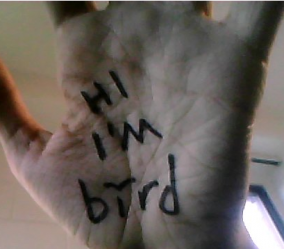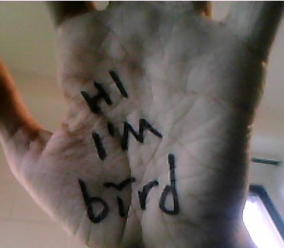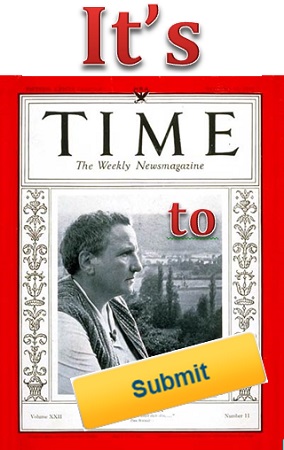Bird Marathe was last year’s third-place recipient of the Gertrude Stein Award in Fiction.
Submissions to this year’s contest are due midnight, New Years Eve. Submit here!
Q: Tell us a little bit about yourself (Other than being a writer, what else?)
Bird Marathe: Once I tried to clean a shadow off a wall. I listen to the Wu-Tang Clan very often.
Q: What made you want to start writing? How did you ‘know’ you were a writer?
BM: When I was six or seven, I wrote a story called “The Mixed-up Wizard and the Unexpected Sillypants,” which was okay for what it was.
Starting when I was in high school, I spent a lot of time playing Dungeons & Dragons on an online message board. Because the players were from all over the world, and everybody posted at different times, the games moved very slowly. So slowly that the more I played, the less it was about the game, and the more it was about exploding small moments – writing two hundred words about my paladin’s decision to spit or not to spit, or three hundred about how to hold a spear. I focused on character, on description, on my sentences. It kept me writing every day.
Nothing let me know that I was a writer. I’ve no notion what the difference between a writer and a person-who-writes is.
Q: Why did you submit last year? What inspired you to get your fiction out there?
BM: It was only natural that I should submit “Hello My New Friend, I Hope” to The Doctor T. J. Eckleburg Review, because:
(1) There aren’t a lot of journals that want multimedia mixed in with their fiction.
(2) Eckleburg takes lots of risks. I thought that maybe Eckleburg would take a risk on me.
(3) “The Gertrude Stein Award” is a toothsome title.
Generally speaking, I decided to get this story out there because it was important to me, and I had been picking at it for a couple of years, and enough already.
Q: How has your experience with The Doctor TJ Eckleburg Review and the contest influenced your writing and/or publishing?
BM: Placing in the contest for sure gave me a confidence boost, got me submitting more things. The printed volume is just lovely, too, and I feel lucky to own a bit of real estate in it.
Q: How did you approach your winning piece when you were writing it? Is it different than how you approach other pieces?
BM: I put almost nothing on the page. I thought of the story as a collection of artifacts that gesture at the existence of a person, but – by the end of it, we still don’t quite know her, not really. There are pieces of the narrative that we don’t have access to, so we have to fill those gaps in our own ways. I have my own narrative for the protagonist in mind, and it lurks beneath the surface of the text, but if somebody finds a different narrative, that’s fine. That’s good.
Q: What have you been writing this past year? What are you working on now? Do you have any literary works in the oven of your mind or in the files of your computer?
BM: Short stories, always, about the mentally infirm, and children, and monsters, and animals, and beings who belong to more than one of those categories.
A novel, which has been a long time coming, which has orphans and a spider.
Performance art pieces. It’s fun to write things that are only meant to be performed, to figure out what doesn‘t work in print, but can work if I’ve got an audience in front of me and I can make eye contact and jump around and throw stuff.
I’m also starting to write something that I will with hesitation call “counterapologetics poetry,” which potentially has an audience of nobody but me, but we’ll see.
Q: Any advice for writers submitting this year?
BM: Take some risks. Run around the playground and break things.
Submissions to The Gertrude Stein Award in Fiction are due midnight, New Years Eve. Submit here!
***

— From Bird Marathe’s award-winning story “Hello My New Friend, I Hope.”
Read the entire story, as well as last year’s second and third place recipients of the Gertrude Stein Award in Fiction, fiction by Rick Moody, nonfiction by Cris Mazza, an interview with Steve Almond and fabulous other poems, stories and artwork in issue 18 of The Doctor TJ Eckleburg Review available here.
Bird Marathe is an MFA candidate and Instructor of Creative Writing at the University of Colorado at Boulder. Bird’s recent publications include pieces in The Café Irreal, Phantasmacoreand Spartan. Bird is also the prose editor for Timber.




 Question: Tell us a little bit about yourself.
Question: Tell us a little bit about yourself.